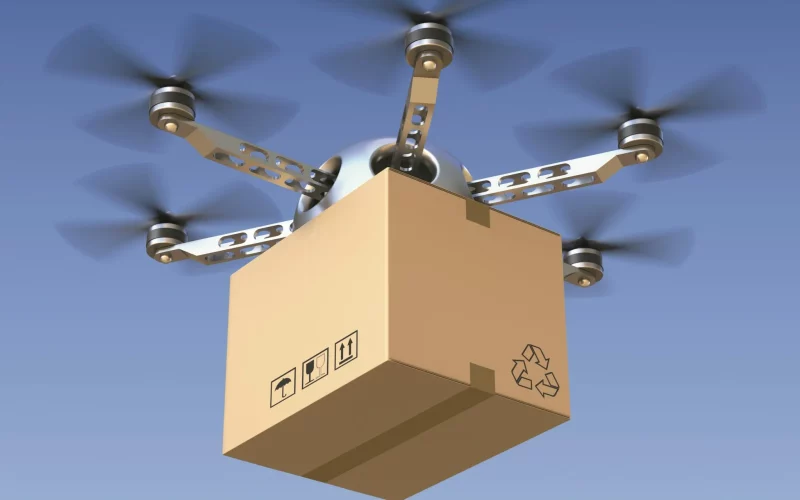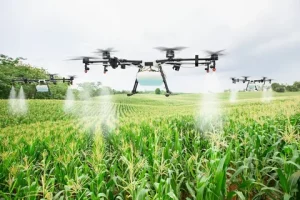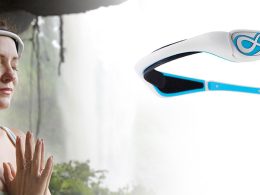Technological advancements in drone delivery
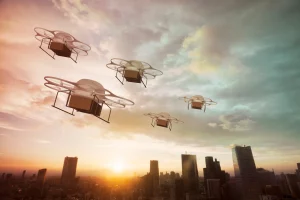
The future of drones in delivery is poised to revolutionize the logistics landscape, thanks to significant technological advancements. One of the primary areas where we will see a major leap is in increased efficiency. Future drones will incorporate more advanced algorithms and AI capabilities, enabling them to optimize flight paths, avoid obstacles, and make real-time adjustments. These improvements will drastically reduce delivery times and increase the overall efficiency of the delivery process.
Enhanced safety protocols will also play a crucial role in the future of drones. With advancements in sensor technology and machine learning, drones will be able to detect and avoid potential hazards more effectively. This will not only ensure the safety of the drones but also protect people and property on the ground, making drone delivery a more viable and reliable option.
Regulatory challenges and solutions
Navigating airspace regulations remains one of the most significant hurdles for the widespread adoption of drone delivery. As the technology advances, regulatory bodies will need to develop new frameworks to manage the increased drone traffic. This will involve creating designated airspace corridors for drones and implementing stringent rules to ensure safe and efficient operations. Innovative compliance solutions will be essential for overcoming these regulatory challenges.
One such solution could be the development of a comprehensive air traffic management system specifically designed for drones. This system would use real-time data to monitor and manage drone flights, ensuring compliance with regulations and minimizing the risk of accidents. Additionally, advancements in geofencing technology will allow drones to automatically avoid restricted areas, further enhancing safety and compliance.
Impact on logistics and supply chain
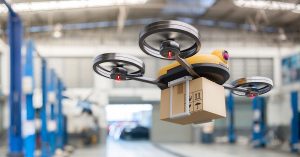
The integration of drones into the logistics and supply chain will have a profound impact, particularly in terms of reducing delivery times significantly. Drones can bypass traditional road networks, avoiding traffic congestion and taking the most direct route to their destination. This capability will enable faster deliveries, especially in urban areas where traffic can be a major bottleneck.
Enhancing last-mile delivery efficiency is another critical benefit of drone delivery. The last mile is often the most challenging and expensive part of the delivery process. Drones can streamline this by delivering packages directly to customers’ doorsteps, reducing the need for multiple handoffs and lowering overall delivery costs. This will not only improve efficiency but also enhance customer satisfaction by providing faster and more reliable deliveries.
Environmental benefits of drone delivery
One of the most significant advantages of drone delivery is its potential to reduce carbon emissions. Traditional delivery vehicles, especially those powered by fossil fuels, contribute significantly to greenhouse gas emissions. By replacing these vehicles with electric drones, we can reduce the carbon footprint of the delivery process.
This shift will be particularly beneficial in urban areas, where delivery vehicles are a major source of pollution. Decreased traffic congestion and pollution in urban areas is another key environmental benefit of drone delivery. With fewer delivery vehicles on the road, there will be less traffic congestion, leading to lower levels of air pollution. This will not only improve air quality but also contribute to a healthier and more sustainable urban environment.
Customer experience and satisfaction
Enhanced delivery speed is one of the most direct ways in which drone delivery will boost customer satisfaction. In today’s fast-paced world, customers increasingly expect quick and reliable deliveries. Drones can meet these expectations by providing same-day or even same-hour delivery services. This will be particularly valuable for time-sensitive deliveries, such as medical supplies or perishable goods.
Ensuring precise and timely deliveries is another crucial aspect of improving customer experience. Drones equipped with advanced navigation systems and real-time tracking capabilities will be able to deliver packages with a high degree of accuracy. This will minimize the risk of lost or delayed packages, further enhancing customer satisfaction and trust in the delivery service.
Cost implications and economic impact
Image by : Yandex
The future of drones in delivery holds significant potential for cost savings in logistics. By reducing the reliance on traditional delivery vehicles and streamlining the delivery process, companies can lower their operational costs. Drones can also reduce labor costs, as they require fewer personnel to manage and operate.
These savings can be passed on to customers in the form of lower delivery fees, making drone delivery an attractive option for both businesses and consumers. Economic growth via drone-based delivery services is another important consideration. The widespread adoption of drone delivery will create new job opportunities in various sectors, from drone manufacturing and maintenance to logistics and air traffic management. This will stimulate economic growth and contribute to the development of a more dynamic and innovative economy.
Integration with existing infrastructure
Seamless integration with current logistics systems is essential for the successful implementation of drone delivery. Drones will need to work in tandem with existing delivery networks, complementing rather than replacing traditional delivery methods. This will involve developing new software and hardware solutions to ensure smooth coordination between drones and other delivery vehicles.
Enhanced efficiency in the future of drones will also depend on their ability to integrate with other emerging technologies, such as autonomous vehicles and smart city infrastructure. By leveraging these technologies, drones can further optimize their operations, providing faster and more efficient deliveries. This integration will be key to realizing the full potential of drone delivery and transforming the logistics landscape.
Future trends and innovations
Autonomous navigation is one of the most exciting trends shaping the future of drones. Advances in AI and machine learning will enable drones to navigate complex environments without human intervention. This will not only improve efficiency but also reduce the risk of human error, making drone delivery safer and more reliable. AI integration enhancing drone delivery efficiency is another critical trend to watch.
AI algorithms can analyze vast amounts of data in real-time, allowing drones to make intelligent decisions and optimize their flight paths. This will enable more efficient use of resources, reducing delivery times and costs. As these technologies continue to evolve, we can expect to see even more innovative applications for drones in the delivery sector, transforming the way we receive goods and services.






